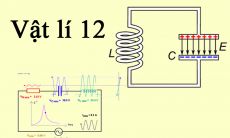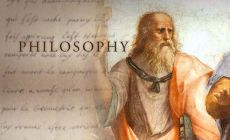Read the following passage and mark the letter A, B, C, or D on your answer sheet to indicate the correct answer to each of the questions
In 1959, the government of Egypt was working on a plan to build a dam on the River Nile. It was called the Aswan Dam, and it was intended to generate electricity and allow the river water to be used for agriculture. There was one big problem with the plan, though. The dam would flood a nearby valley that contained ancient Egyptian treasures, including two enormous stone temples.
It can be difficult for governments to choose culture and history over economics. However, if countries always made decisions like this, the majority of the world's ancient sites would end up being destroyed. Luckily, UNESCO stepped in. They formed a committee that tried to convince Egypt to protect its ancient treasures. With support from many countries, they were finally successful. The huge temples were carefully removed from their original site and moved to a safe location so that the dam could be built.
After their success in saving the temples in Egypt, UNESCO went on to save more sites around the world. They protected lagoons in Venice, ruins in Pakistan, and temples in Indonesia. With industrialization changing the world rapidly, there were many sites that needed to be saved. Eventually, UNESCO formed the World Heritage Organization to protect important natural and historic sites wherever it was necessary.
By now, the World Heritage Organization has protected hundreds of sites ranging from beautiful natural islands to buildings in large cities and ancient ruins. If you're able to visit any of the many protected sites, you'll agree it was worth it.
Câu 28 : What is the best title for the passage?
Hãy suy nghĩ và trả lời câu hỏi trước khi xem đáp án
Lời giải:
Báo saiKiến thức: Đọc hiểu
Giải thích:
Tiêu đề hay nhất cho đoạn văn là gì?
A. UNESCO
B. UNESCO thành công
C. UNESCO phát triển
D. UNESCO giải cứu
Ta thấy cả đoạn văn đưa ra các chiến dịch UNESCO giải cứu và bảo vệ các kì quan thế giới.
Câu 29 : What is meant by the first sentence of the second paragraph?
Hãy suy nghĩ và trả lời câu hỏi trước khi xem đáp án
Lời giải:
Báo saiKiến thức: Đọc hiểu
Giải thích:
Câu đầu tiên của đoạn văn thứ hai có ý nghĩa gì?
A. Hầu hết các chính phủ thích bán kho báu của họ.
B. Tiền đôi khi có vẻ quan trọng hơn tất cả những thứ khác.
C. Chính phủ không bao giờ có thể xem xét hai điều cùng một lúc.
D. Các chính phủ thường không biết gì về văn hóa của họ.
Thông tin: It can be difficult for governments to choose culture and history over economics.
Tạm dịch: Có thể khó khăn cho các chính phủ trong việc lựa chọn văn hóa và lịch sử thay vì kinh tế.
Câu 30 : Why did UNESCO get involved in Egypt?
Hãy suy nghĩ và trả lời câu hỏi trước khi xem đáp án
Lời giải:
Báo saiKiến thức: Đọc hiểu
Giải thích:
Tại sao UNESCO lại can dự vào Ai Cập?
A. Ai Cập đang có kế hoạch xây dựng một con đập có thể gây hại cho các ngôi đền cổ.
B. Ai Cập đã có kế hoạch xây dựng một thung lũng cho nông nghiệp và điện.
C. Ai Cập đã có kế hoạch tạo ra một con đập ngay trên đỉnh của một ngôi đền cổ đại.
D. Khi con đập làm ngập một thung lũng, một số kho báu đã được phát hiện.
Thông tin: Luckily, UNESCO stepped in. They formed a committee that tried to convince Egypt to protect its ancient treasures. With support from many countries, they were finally successful. The huge temples were carefully removed from their original site and moved to a safe location so that the dam could be built.
Tạm dịch: May mắn thay, UNESCO đã vào cuộc. Họ đã thành lập một ủy ban cố gắng thuyết phục Ai Cập bảo vệ các kho báu cổ xưa của mình. Với sự hỗ trợ từ nhiều quốc gia, cuối cùng họ đã thành công. Những ngôi đền khổng lồ đã được di dời cẩn thận khỏi vị trí ban đầu và chuyển đến một vị trí an toàn để có thể xây dựng con đập.
Câu 31 : Why is the World Heritage Organisation more important now than it would have been 200 years ago?
Hãy suy nghĩ và trả lời câu hỏi trước khi xem đáp án
Lời giải:
Báo saiKiến thức: Đọc hiểu
Giải thích:
Tại sao Tổ chức Di sản Thế giới hiện nay lại quan trọng hơn nó đã từng 200 năm trước?
A. Các quốc gia không hợp tác trong quá khứ.
B. Các thành phố hồi đó nhỏ hơn.
C. Không có nhiều địa điểm thú vị trong 200 năm
D. Kinh doanh và sản xuất hiện đại đang thay đổi thế giới.
Thông tin: With industrialization changing the world rapidly, there were many sites that needed to be saved. Eventually, UNESCO formed the World Heritage Organization to protect important natural and historic sites wherever it was necessary.
Đề thi HK2 môn Tiếng Anh 11 năm 2021
Trường THPT Việt Thanh














